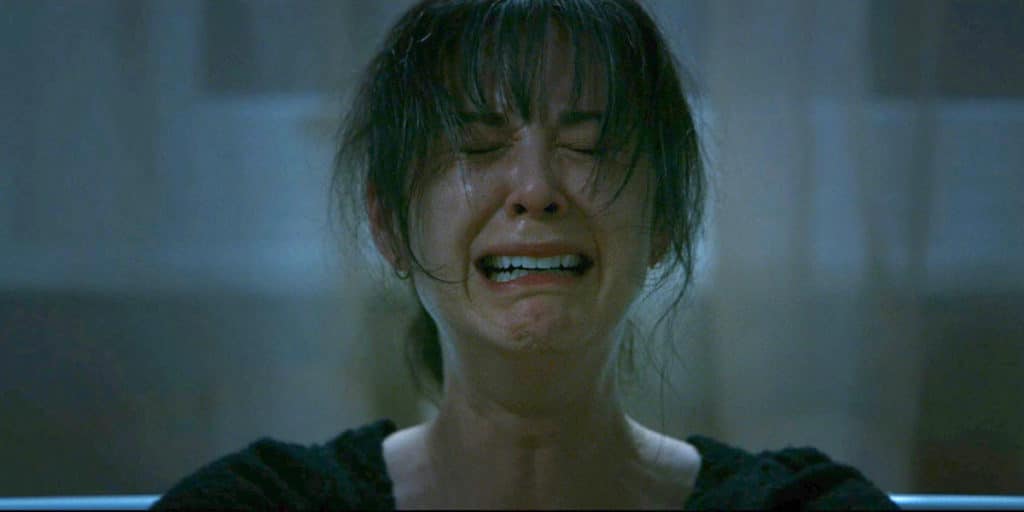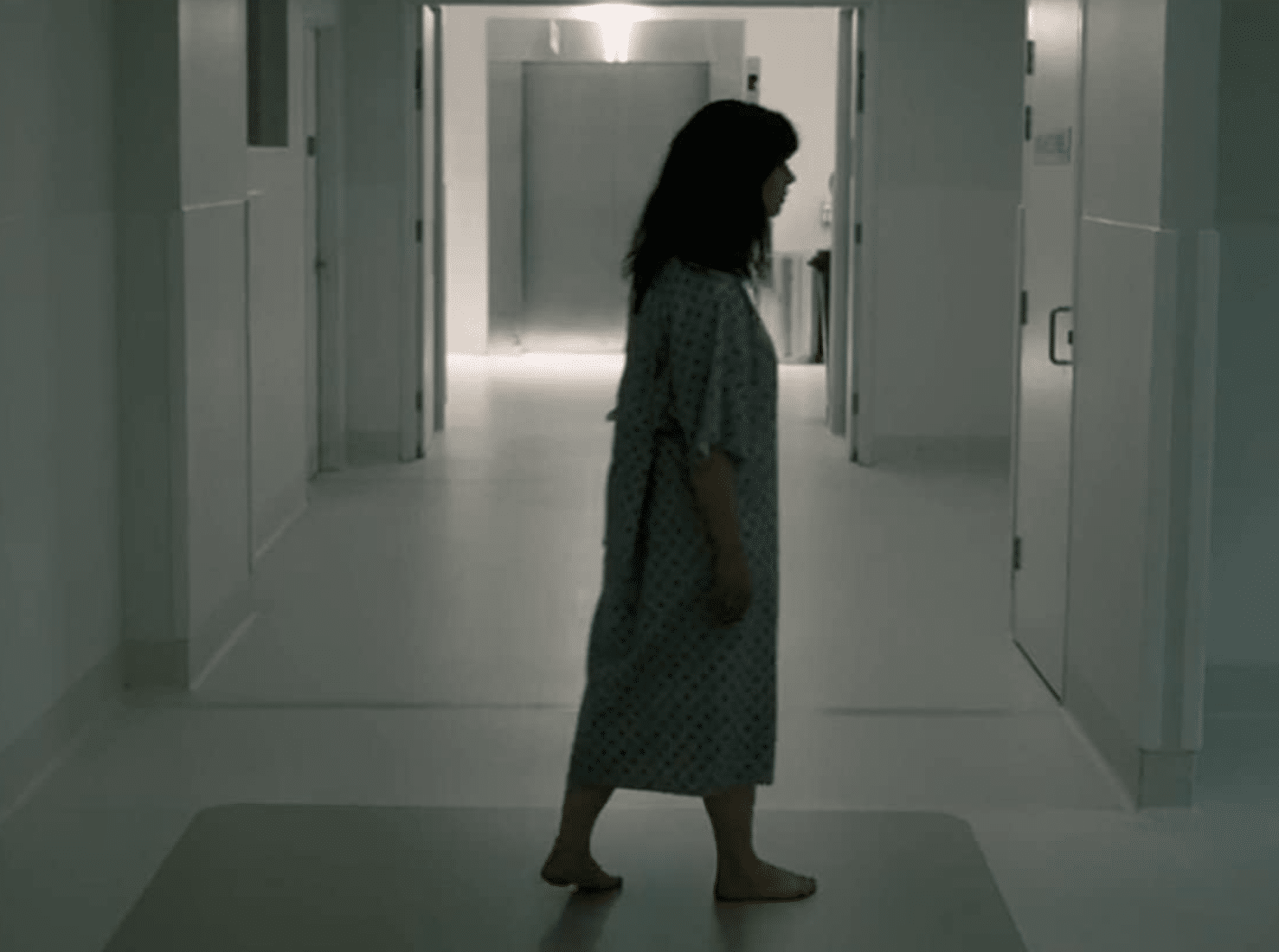
Whilst starting from a reasonably realistic, grounded place, Surrogate (2022) is soon racing along with a raft of recognisable supernatural plot elements, sacrificing its chances at doing something original or innovative to do something tried-and-tested. It’s an often attractive film which does much with its limited budget in terms of its framing, lighting and limited SFX scenes, but these scenes are dependent on ideas easy to follow straight back to The Changeling (1980), Ring (1998) or perhaps most of all, to Dark Water (2005).
We begin with a small family group celebrating the youngest member’s ninth birthday. We know that Rose has just turned nine, because she’s so keen to ask how grown-up she’ll be by the time she’s ten. This is a single-parent family, albeit with an uncle and a grandparent to offer support. Rose’s mother, Natalie (Kestie Morassie, Wolf Creek) works as a nurse and has just been working a shift at a small-town clinic on a night not long after the party, when she’s approached by a disturbed woman, seeking medical help. The woman follows Natalie to a garage, where she drinks something toxic and – well, a couple of Fulci-esque moments later, it’s clear she’s past helping. Natalie tries to revive her, but can’t. However, Natalie immediately begins vomiting, just like the woman was: her symptoms quickly worsen.
That night, she begins bleeding heavily (when you’re not told where a woman is bleeding from, you automatically know) and needs to be rushed into hospital. Tests turn up irregularities; the team assigned to her declare that she has recently given birth, something which is news to her. She begins to recuperate at home, but her physical and now psychological symptoms persist, soon reaching out to affect other people in her orbit, including Rose (Taysha Farrugia). A lot of new phenomena – and some new characters – all begin to tumble together, as the film settles into its ‘woman vs. malign mystery’ mode.
The set-ups here are easy to read, and presumably intended to be so; you know when a jump scare is coming; you know that a camera fixing its eye on a wobbly chair leg, just as someone steps up on said chair, can mean only one thing. When a random psychic presents his card in the park, we know this’ll lead to a bit of exposition on what is happening. Assuming that the director and writer know what the audience know, then, we can assume that the film is a kind of tribute to supernatural horror per se, though this makes it a challenging watch – it can feel like diminishing returns. The team behind Surrogate has specifically namechecked Ring as an influence, by the way; whilst the film does not go down the route of making technology a key plot point, this influence is quite openly apparent in other aspects.
However, some budgetary and performance-based problems in Surrogate can only make it feel as though it can’t quite match up to those films which influenced it. Some echoing sound on internal shots is one thing, and this can be overlooked; sad to say, Taysha Farrugia’s performance as Rose is unnatural enough to stand out, making her scenes rather jarring. It’s her first feature, granted, but her over-pronunciation of her lines feels like another obstacle in the film’s way. Alongside her, we do have Morassie doing an essentially decent job, and it’s nice to see Jane Badler (Diana from V) doing a brief turn as a surprisingly keen social worker. By the by, the other child actor, Ellie Stewart, has some of the same issues.
Alongside the attentions of social services, the film also has an interesting point to make about the overweening attentions of the medical profession, as Natalie’s unfair treatment by the hospital is – heavily signposted, yes, but no less repellent for that, as her own explanations of her own symptoms are disregarded in favour of a non-existent baby. But then, in shining a light on the burdens placed on mothers in particular, the film is also reliant on them, and perhaps rattles through more of these burdens than is feasible in ninety minutes, even in a supernatural horror. We get through pregnancy, lactation, birth, the maternity ward, parenting and ageing, with never a father in sight, and then there’s the small matter of the title, too. Sure, that’s ‘the point’ perhaps, but the film absolutely requires our shared understanding of these assumptions, as much as it’s ever able to question any of them.
As a result, Surrogate is a visually pleasing, but familiar-feeling story where a few of the decisions and developments tend to work against the film’s overall impetus. It’s by no means without merit, but some of the film’s prickly, predictable content hampers its success at generating scares.
Surrogate (2022) is available to watch now on Tubi and other VOD platforms.
